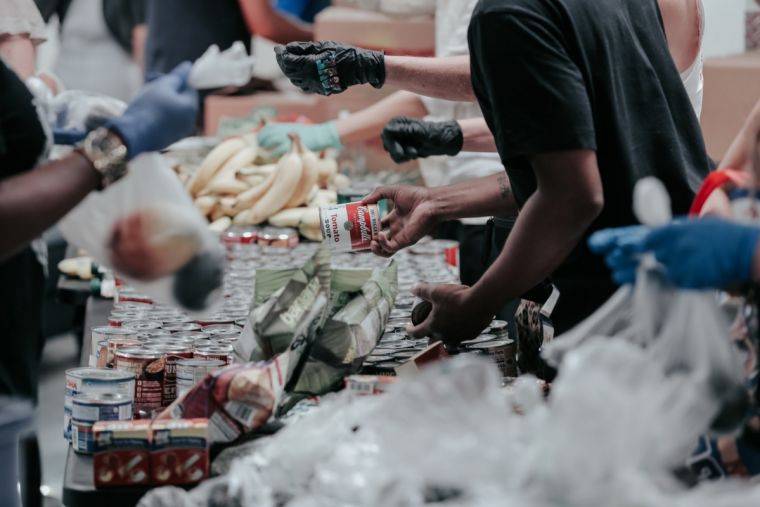What does 'love your neighbour' look like in practice?

Life is full of surprises. I have been acutely aware of that ever since my wife heard the unforgettable words, "Yes, there's the second head." We simply didn't have a clue she could be carrying twins until that life-changing moment.
Some surprises are not so welcome though. Many people felt like that when the Home Office turned the army camp in Penally, Pembrokeshire into a temporary home for asylum seekers last September and I was one of the many who believed it was not a suitable choice either for the men themselves or for the locals.
To no one's surprise though, our reasoned arguments fell on deaf ears. But now, in what seems to have been something of a major U-turn, the camp has been closed and the men have been rapidly transferred to various other locations.
I was surprised to be asked to get involved as the lead chaplain at the camp, but I am so glad I did. Frustrating as it proved at times given the Covid restrictions, I was delighted to get to know some of the men and encouraged to see the multi-faith chaplaincy swing into action. It was good to get to know those working at the camp too, both in a voluntary and professional capacity. They proved extremely supportive.
Above all though I have been thrilled by the generosity of those who have wanted to show care to men whose lives have been traumatised by pain and suffering.
My experience of working with refugees in the former Yugoslavia certainly proved helpful and persuaded me that it was right for me to get involved, but we who live cossetted lives here in the UK can never really understand what it's like to lose your home and perhaps your family, and then to have to undergo a process of rigorous scrutiny before being allowed to live in this 'green and pleasant land'.
I was as horrified as many by the unpleasant scenes we encountered at the beginning, but I believe those demonstrations of unkindness were more than countered by the amazing acts of kindness and generosity I have witnessed over the past six months.
I received offers of help and support from places as far afield as Cardigan and Swansea with the result that I was able to hand over more than three hundred gifts at Christmas as well as 20 tablets that could be used for chaplaincy and general use. These tablets will now be used by asylum seeker families with children in Cardiff, and I am praying they prove as much an encouragement to them as they were to me.
"Love your neighbour" is a well-known saying of course but our communities would be very much happier and healthier if we allowed it to shape the way we relate to each other. However, I guess few would know that it has its origin in the little-known Old Testament book known as Leviticus, and ever fewer would realise that the very same chapter contains a command to love the "aliens" who were living in the land too.
It says, "When a foreigner lives with you in your land, don't take advantage of him. Treat the foreigner the same as a native. Love him like one of your own" (Leviticus 19:33).
In fact, it has been noted that the Old Testament reminds Israel of its obligations to aliens, widows and orphans some 36 times. It seems to me that God is trying to make a point!
If we want to live as God intends then we will renounce racism, reject forms of patronising behaviour and abstain from anything that smacks of exploitation. If I had to flee my home in a desperate effort to find a new life, I would not want to be viewed as just a 'problem' and I would not want to be seen as a mere number.
I would like to be treated as a human being; someone who has been created in the image of God with the potential to make a massive contribution to the community in which I've found a home. The Book of Leviticus is bang up to date then and thankfully, I've had the privilege of seeing that love in action over the past six months.
Rob James is a Baptist minister, writer and church and media consultant to the Evangelical Alliance Wales. He is the author of Little Thoughts About a Big God.











